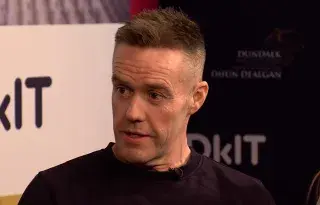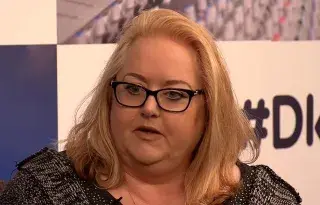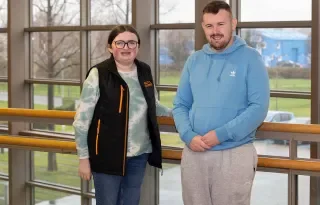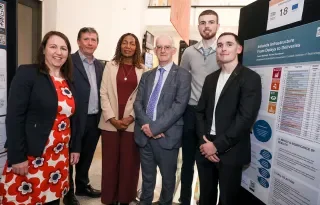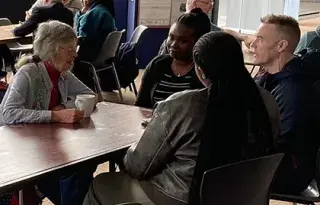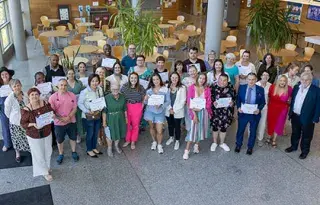BA (Hons) in Social Care
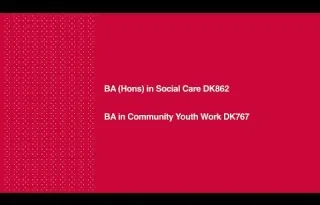
Search to find a different course
Course Overview
This course prepares students to have a rewarding career in social care, a profession characterised by working in partnership with people who experience marginalisation, or disadvantage, or who have special needs.
Students will develop their knowledge of, and ability to apply, key theories and concepts such as attachment & loss, strengths-based approaches, anti-oppressive practice, and systems theory to practice. Knowledge of key legislative and policy frameworks that guide practice across a wide range of social care services is also central to student learning.
As part of the course, students engage in active participation, including role-play and peer learning, in the classroom. Professional practice placement is an integral part of this course where students complete two blocks of 400 hours of practice in a social care setting.
This course is approved by CORU, Ireland’s multi-profession health regulator.
What makes this course different
Industry Approval
This course is approved by CORU, Ireland’s multi-profession health regulator.
Graduate Success
89% of graduates from this course are in full-time employment after 6 months of graduating. All of these graduates are earning between €30-€50k. (DkIT/HEA Graduate Survey)
Gain an Advantage
100% of graduates said their qualification was essential or gave them an advantage in their career (DkIT/HEA Graduate Survey)
Understanding the Industry
Social Care Practitioners are professionally qualified to work in collaboration with individuals and groups of all ages who experience marginalisation, disadvantage and social exclusion. Embracing a relationship-based approach to practice, social care workers professionally guide and support those they care for, while ensuring that the service user is an active participant in all decision-making regarding what supports and interventions will best meet their needs. Social care practice is built on the principles of dignity, respect, social justice, equality and inclusion. Through empowering of service users, social care workers can assist them to overcome challenges they may face to reach their potential and fully participate in society. Social Care Work is now a regulated profession in Ireland, with graduates of the BA (Hons) in Social Care, able to apply to CORU for registration, as a social care worker.
Career Opportunities
As a social care practitioner, now qualified under the professional regulator CORU, you will be sought after by employers in a range of areas.
Future Careers:
- Social Care Workers
- Community Workers
- Youth Workers
- Support Worker
In these areas:
- Residential Care
- Disabilities Services
- Homelessness Services
- Addiction Services
- Immigration Services
- Child and Family Services
- Government
- Voluntary Sector
Graduates work at
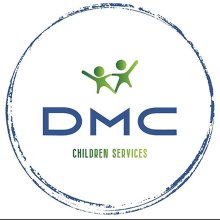
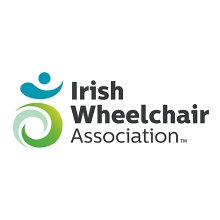
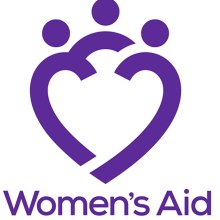
Course Delivery and Modules
All modules on the course are mandatory modules, with students typically studying between five to six modules per semester. These modules are aligned to ensure that students gain the standards of proficiency for professional practice in social care, alongside the academic requirements of their course. Students also complete two professional practice placements - one in semester 1 of year two and one in semester 2 of year 3 - each of 400 hours duration. Students work closely with the course Professional Practice Placement Coordinator, who allocates placements, based on the student's learning requirements. Moreover, students undertake placements within two different settings, gaining experience in a wide range of social care practices.
Year 4 has two research project modules that offer students the opportunity to work on a research project of their choosing and design. Aligned with this is their submission of documents for ethical approval. The two semesters emphasise the two strands of social studies and service users.
- Communication and Collaborative Practice in Social Care
- Introducing Psychology in Care
- Issues in Social Care
- Creative and Reflective Practice in Social Care
- Sociological Context of Social Care
- Preparation for Professional Practice
- The Self in Social Care
- The Arts in Social Care Practice
- Theories for Relationship-based Practice
- Sociological Change in Ireland
Work placement
Placements occur in both Year 2 and 3 of study. Placement sites include the following services and supports in the following areas:
- Child and Family Agencies
- Disability
- Older Person Supports
- Mental Health / Addiction
- Homelessness
- Domestic Violence
- Social Inclusion initiatives
Each placement is a 13-week block placement as follows:
- 2nd year placement: September - December
- 3rd year placement: January - May
Prior to attending placement, all students must satisfy the Garda / Police Vetting procedure of DkIT. A number of vaccinations are also recommended for students attending placement. Students must also complete mandatory pre-placement training.
Professional Accreditations
This course is approved by CORU, Ireland’s multi-profession health regulator.
Education Progression
On completion of their undergraduate studies, graduates with a 2:1 award class can apply for Masters and PhD by Research at DkIT.
Previous graduates have progressed to further studies in areas such as social policy, gender and social care, disability studies and social work studies.
MA in Leadership, Management and Innovation for Social Care
Fees and Funding
Please find information on fees and funding here: www.dkit.ie/fees
Entry requirements
In addition to the standard entry requirements below, students will need to complete Garda Vetting.
- Standard Requirements for Leaving Certificate Applicants
- Standard Requirements for UK/NI Applicants
- Standard Requirements for QQI-Further Education Applicants
- English Language Requirements for International (non-EU) Applicants
Recent CAO points
How to apply
Apply on CAO
All standard entry first-year applicants must apply for entry through the CAO. See Important application dates for CAO and information for specific applicant types below:
International Application (non-EU)
International Applicants (not from or living in the EU) can apply through an agent or directly to DkIT to study this course.
Ask us a Question
If you have a question about the BA (Hons) in Social Care please ask it below and we will get back to you.
Course News
View all NewsDisclaimer: All module titles are subject to change and for indicative purposes only. All courses are delivered subject to demand and timetables are subject to change. Elective Module options will only run subject to student numbers. The relevant Department will determine the viability of each elective module option proceeding depending on the number of students who choose that option. Students will be offered alternative elective modules on their programme should their preferred elective option not be proceeding. Award Options for Common Entry Programmes: The relevant Department will determine the viability of each award option proceeding depending on the number of students who choose either option. If the numbers for one of the Award options exceed available places, students for this option will be selected based on Academic Merit (highest grades).

